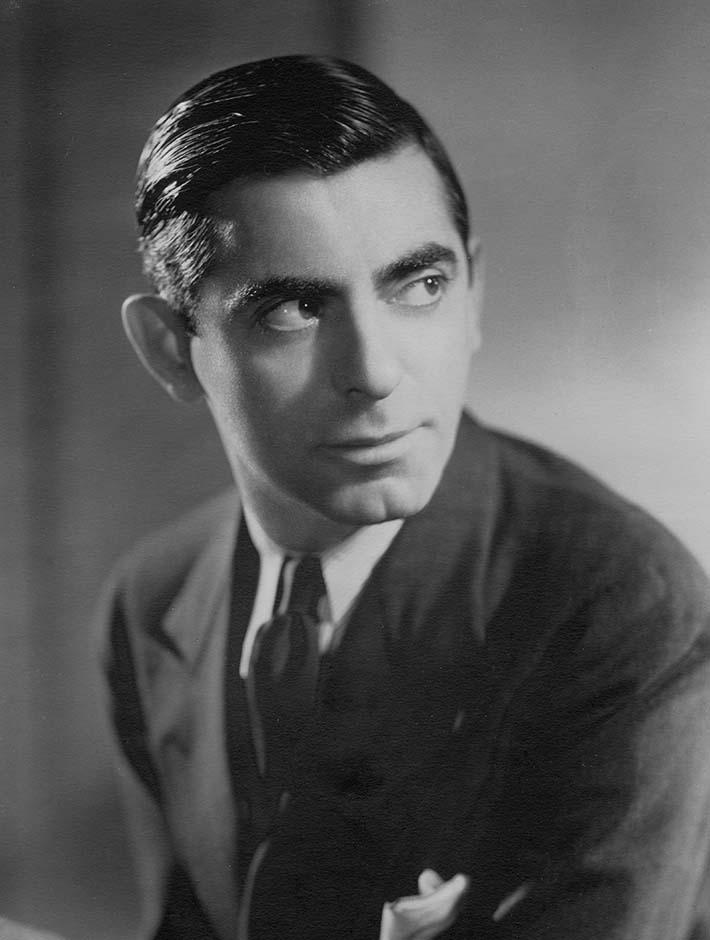
The only person to have been national president of both Screen Actors Guild (1933 – 1935) and AFTRA (as AFRA, the American Federation of Radio Artists), he held AFRA membership card No. 1 (and SAG membership card No. 45). A hugely popular performer on radio, he and crooner Rudy Vallee were both proposed as first AFRA presidential candidates until it was pointed out that Vallee, as a member of the American Federation of Musicians, was ineligible to serve — the AFM had a provision that no member could accept any office that affected a members’ obligation to it.
Cantor, who was in California at the time, on summer hiatus from his CBS radio show Texaco Town and filming his 12th feature film, Ali Baba Goes to Town, was elected unanimously. As both a radio star and a union veteran since his days as an Actors’ Equity council member and major participant in Equity’s 1919 strike, Cantor was a natural choice to lead the first chartered radio performers union.
During AFRA’s first national contract negotiations in late 1937, Cantor was advised to telegram CBS President William Paley and NBC President Lenox Riley Lohr, advising them that AFRA was ready to negotiate and to stress that it would be in the radio industry’s best interests for them to meet with the negotiating committee. Cantor’s outreach paid off and CBS and NBC set up a joint network committee to meet with AFRA’s negotiators. In July 1938, Cantor celebrated winning the union’s first major contract: the Minimum Sustaining Agreement for Network Radio, a two-year contract for actors and singers employed on CBS and NBC sustaining programs. It recognized AFRA as the exclusive bargaining agent for those employed in New York, Chicago, Los Angeles and San Francisco.
The ever-busy Cantor accepted an additional union presidency on Aug. 14, 1939 — of the newly chartered American Guild of Variety Artists after the charter for its predecessor, the American Federation of Actors, was revoked.
Cantor, who received numerous awards during his life, was hardly forgotten in his later years: In 1957, the Academy of Motion Picture Arts and Sciences presented him with an honorary statuette “for distinguished service to the film industry.” On Jan. 31, 1964, California Governor Edmund G. “Pat” Brown presented Cantor with a scroll from President Lyndon B. Johnson honoring Cantor for “distinguished service to the nation and humanity.” Ten months later, Cantor passed away from a heart attack at age 72.
He has three stars on the Hollywood Walk of Fame in three categories: Motion Pictures at 6648 Hollywood Blvd., Television at 1770 Vine Street and Radio at 6765 Hollywood Blvd.
